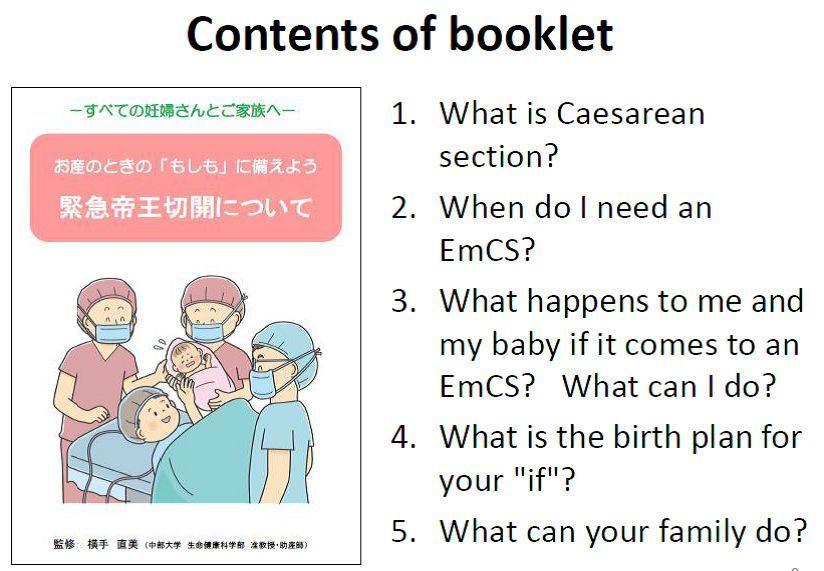
Naomi YOKOTE
Chubu University, Japan
Title: Evaluation by Japanese expectant mother for the program ‘Prenatal Education for Adaptation to Caesarean Birth in an Emergency (PEACE)’
Biography
Biography: Naomi YOKOTE
Abstract
Background: The caesarean section rate in Japan has tripled in hospitals in the past 30 years, and doubled in clinics, where it is approximately 20%. Japanese women remain strongly inclined to have a natural childbirth, so they develop negative feelings and trauma when they must undergo an emergency caesarean section (EmCS).
Aim: To investigate the effectiveness of a comprehensive childbirth preparation education program i.e., prenatal education for adaptation to caesarean birth in an emergency (PEACE) on pregnant women developed to enhance expectant mother's adaptability to an EmCS.
Method: We conducted intervention research at the research cooperation facility and evaluated the program using the booklet; preparing for "If" in case of childbirth-about emergency caesarean section. In the usual late pregnant classroom of the research cooperation facility, midwives provided the information dedicated to EmCS using a booklet developed by the authors in 15 minutes. After a week, the participated pregnant women answered a questionnaire on the evaluation of this program. This research was conducted with the approval of the Ethics Review Committee of the cooperating facility. Also, in order to prevent any differences in intervention and survey method by the midwives in charge, we made procedure manual, careful meetings and carried out this intervention study.
Results: The questionnaires were collected from 858 late pregnant women. The degree of comprehension of explanation contents by midwife was "well understood" 42%, "generally understood" 56%. About a switching time of birth plan in EmCS, "I had the idea" was 23%, "not yet considered (from now on)" was 76%. Regarding the prediction of adaptability to EmCS, “I will be able to respond calmly on my own” was 2%, "It seems to be able to manage it somehow" 60%, "I think that I cannot deal with it much" 10%. Evaluation on the booklet itself was generally highly valued with "very good" 57%, and "good so good" 42%. For that reason; women recognized that EmCS were not unrelated to them, they were able to attend, illustrations and explanations were easy to understand.
Discussion: From the evaluation to PEACE by late pregnant women, we can obtain their understanding of EmCS, and expect to prompt emergency attitude and coping behaviors. In the future, we will evaluate this program based on the survey results for the puerpera who had an EmCS indeed.


